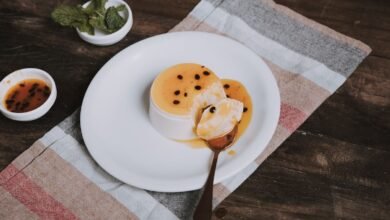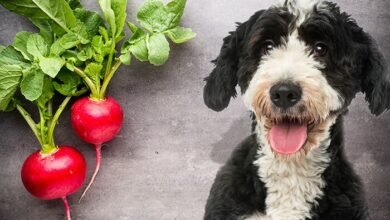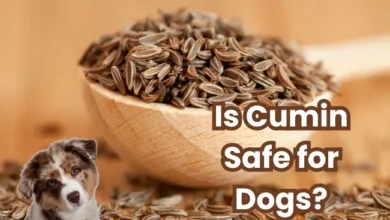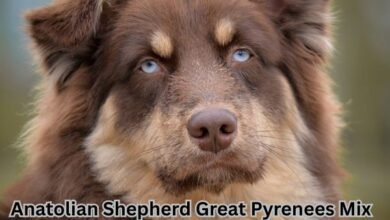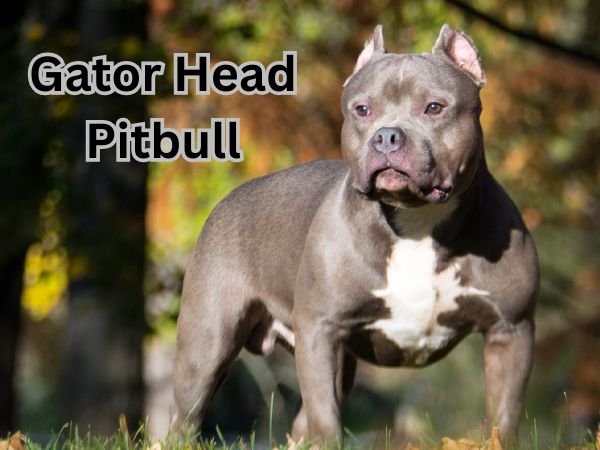
When people hear the term Gator Pitbull, a few thoughts might come to mind: the legendary bloodline known for its powerful build and unique jaw structure, or the stories of fierce loyalty and strength that set this breed apart from other Pitbulls. But what exactly makes the Gator Pitbull so special within the Pitbull family?
In this article, we’ll dive into 11 must-know facts about the Gator Pitbull — from its intriguing history and distinct lineage to its temperament and care needs. Whether you’re a longtime fan of this breed or just curious about what sets it apart, this guide will help you understand why the Gator Pitbull holds a unique place in the world of dogs. Get ready to explore everything from their physical traits to training tips, and learn why this breed has captured the hearts of many dog lovers.
What Is a Gator Pitbull?
A Gator Pitbull is not a separate dog breed. Instead, it is a specific bloodline within the American Pit Bull Terrier (APBT) breed. The term “Gator Pitbull” refers to dogs that come from the Gator bloodline, which is known for its history and certain physical and behavioral traits.
Origins of the Gator Bloodline
- The Gator bloodline can be traced back to the 1970s.
- Two famous dogs, CH Plumber’s Alligator and CH Rodriguez’s Gator ROM, are the foundation of this bloodline.
- These dogs were bred by well-known breeders like Floyd Boudreaux.
- Originally, the Gator bloodline was created to produce strong, tenacious dogs for dogfighting, a practice that is now illegal and widely condemned.
What Does “Gator Mouth” Mean?
- The term “Gator Mouth” is often used to describe Pitbulls from the Gator bloodline.
- It does not mean the dog has a mouth like an alligator. Instead, it’s a nickname that highlights the dog’s strong jaw and tenacity, traits that were valued in the fighting rings.
- “Gator Head Pitbull” is another nickname, referring to the dog’s broad, powerful head, which is a common feature in this bloodline.
Appearance and Traits
- Size: Gator Pitbulls are medium-sized, muscular dogs. They usually stand between 14 and 21 inches tall and weigh 60 to 80 pounds.
- Coat: Their coat is short, shiny, and smooth. They come in many colors, including black, blue, brindle, red nose, and blue nose.
- Eyes: Their eyes can be blue (when young), brown, or hazel.
- Build: They have a strong bone structure, a thin tail, and a broad head—often called a “Gator Head”.
History: From Dogfighting to Family Companion
Dogfighting Past
- The Gator Pitbull bloodline was originally bred for dogfighting. Breeders wanted dogs that were strong, fearless, and could endure pain.
- These dogs were famous for their courage and ability to keep fighting even when injured.
- Dogfighting is now illegal and considered cruel. Most countries have banned it, and responsible breeders no longer breed dogs for fighting.
Modern Role as Companions
- Today, Gator Pitbulls are valued as loyal, intelligent, and loving family pets.
- They are active, playful, and love to be around people. With proper training and socialization, they can be great companions
- Because of their strength and energy, they need regular exercise and attention. Early socialization and training are important to ensure they are well-behaved and safe around other animals and people.
Key Points About the Gator Pitbull Bloodline
- Not a separate breed: It is a bloodline within the American Pit Bull Terrier family.
- Distinctive traits: Known for their strength, courage, and loyalty. “Gator Mouth” and “Gator Head” refer to their physical features and tenacity.
- History: Bred for fighting, but now mostly kept as family pets with proper care and training.
- Appearance: Muscular, medium-sized, with a shiny coat and a broad head.
- Temperament: Intelligent, affectionate, active, but can be stubborn or aggressive without proper training and socialization.
Gator Pitbulls have a complicated history, but today they are mostly known for being loyal and loving pets. If you are interested in a Gator Pitbull, always get your dog from a reputable breeder who can provide proof of the bloodline. Remember, every dog needs love, training, and care to become a wonderful companion.
Physical Characteristics That Make the Gator Pitbull Stand Out
The Gator Pitbull is famous for its strong and impressive look. It is a type of American Pit Bull Terrier, known for its unique physical traits. Let’s explore what makes the Gator Pitbull special and easy to recognize.
Muscular Build
- Muscular Pitbull:
The Gator Pitbull has a very muscular body. Its muscles are clearly visible, making it look powerful and athletic. - Strong Chest:
The chest is broad and deep, giving the dog a sturdy and solid appearance. - Thick Neck:
The neck is thick and strong, which adds to the overall muscular look.
Broad, Square-Shaped Head
- Gator Pitbull Physical Traits:
One of the most noticeable features is the head. It is broad, square-shaped, and often compared to an alligator’s head. That’s where the name “Gator” comes from. - Strong Jaw:
The jaw is wide and powerful, giving the dog a firm and determined look. - Short Muzzle:
The muzzle (the nose and mouth area) is short and wide, matching the shape of the head.
Short, Shiny Coat
- Pitbull Appearance:
The Gator Pitbull has a short, smooth coat that lies close to the body. It feels soft and is easy to care for. - Shiny Fur:
The coat often looks shiny and healthy when the dog is well taken care of.
Size and Weight Range
- Medium Size:
Gator Pitbulls are medium-sized dogs. - Height:
They usually stand between 14 to 21 inches tall at the shoulder. - Weight:
Most Gator Pitbulls weigh between 60 to 80 pounds. Some may be a little lighter or heavier, depending on their diet and activity.
Coat Colors and Common Physical Markers
- Wide Range of Colors:
Gator Pitbulls can come in many colors. The most common are black, blue, brindle, brown, red, and even white. - Markings:
Some have white markings on their chest, face, or paws. - Eye Color:
Their eyes can be brown, hazel, or even blue when they are puppies. - Nose Color:
The nose can be black, blue, or red, depending on the dog’s genetics.
Other Distinctive Features
- Tail:
The tail is medium in length, thick at the base, and tapers to a point. - Ears:
The ears are usually small to medium-sized and can be either floppy or cropped, depending on the owner’s choice. - Paws:
The paws are strong and compact, helping the dog move quickly and with power.
The Gator Pitbull stands out because of its muscular build, broad and square-shaped head, and short shiny coat. Its size, weight, and range of coat colors add to its unique appearance. With these physical traits, the Gator Pitbull is easy to recognize and is often admired for its strength and beauty. If you want a dog with a strong presence and a loyal heart, the Gator Pitbull is a great choice.
10 Key Traits of the Gator Pitbull
The Gator Pitbull, known for its unique bloodline and strong personality, has several important traits. Here are the top ten characteristics that make this Pitbull bloodline special:
1. Loyal and Human-Devoted
- Gator Pitbulls form a strong bond with their owners.
- They are very loyal and love being close to their family.
- This breed often follows its favorite person around the house.
2. Highly Intelligent
- Gator Pitbulls are quick learners.
- They pick up new commands and tricks easily.
- Their intelligence makes them adaptable to different types of training.
3. Energetic and Active
- These dogs have a lot of energy and need daily exercise.
- They enjoy running, playing, and mental games.
- Without enough activity, they can become bored or restless.
4. Friendly Family Dog
- With early socialization, Gator Pitbulls are affectionate with children.
- They can get along well with other family members and even pets.
- Teaching them to be gentle from a young age is important.
5. Strong Bite Force
- Gator Pitbulls are physically powerful and have a strong jaw.
- They are not aggressive by nature, but their strength means they should always be handled with care.
- Proper training helps them use their strength safely.
6. Confident and Bold
- This bloodline is known for its natural courage.
- Gator Pitbulls are not shy or timid.
- Their boldness makes them determined and persistent.
7. Protective Instincts
- Gator Pitbulls are good watchdogs.
- They are alert and will warn their owners if something seems wrong.
- Their protective nature makes them loyal guardians.
8. Stubbornness and Training Needs
- Sometimes, Gator Pitbulls can be stubborn.
- They need consistent, early training and a firm, confident leader.
- Positive reinforcement and patience work best with this breed.
9. Low Maintenance Grooming
- Their short, smooth coat is easy to care for.
- Brushing once a week is usually enough to keep their fur healthy.
- They don’t shed much and are low maintenance when it comes to grooming.
10. Health Considerations
- Gator Pitbulls can have some health issues, like knee problems (patellar luxation) and hip dysplasia.
- Regular vet check-ups and a healthy diet are important.
- Exercise and proper care help prevent many common problems.
These ten traits show why the Gator Pitbull is a popular and loved member of the Pitbull bloodline family. With the right care, training, and attention, they make wonderful companions for the right owner.
Debunking Common Myths About the Gator Pitbull
Gator Pitbulls are often misunderstood. Many people believe things about them that are not true. Let’s talk about some common myths and what is actually true about these dogs.
Myth 1: Gator Pitbulls Are Always Aggressive
- Fact:
Gator Pitbulls are not born aggressive. Like any dog, their behavior depends on how they are raised and treated. - Aggression is not a breed trait:
Most Gator Pitbulls are friendly, loyal, and love being with people. - Bad behavior often comes from bad training or neglect:
If a dog is not socialized or is treated badly, it may act out. This can happen with any breed, not just Pitbulls.
Myth 2: Gator Pitbulls Have the Strongest Bite Force
- Fact:
Many people say Pitbulls, including Gator Pitbulls, have the strongest jaws or bite force. This is not true. - No scientific proof:
Studies show that their bite is not stronger than other big dogs like German Shepherds or Rottweilers. - Bite force depends on the dog, not the breed:
All dogs can bite hard if they feel scared or threatened.
The Importance of Socialization and Training
- Early socialization is key:
Gator Pitbulls need to meet different people, animals, and go to new places when they are puppies. This helps them become calm and friendly adults. - Training builds good habits:
Teaching your dog basic commands and rewarding good behavior helps them learn what is right and wrong. - Positive experiences matter:
Dogs that have positive experiences with people and other animals are less likely to be fearful or aggressive.
What Really Shapes a Gator Pitbull’s Temperament?
- How they are raised:
A loving home, regular training, and socialization make a big difference. - Owner’s attitude:
Calm, patient, and confident owners help their dogs feel safe and happy. - Exercise and attention:
Gator Pitbulls are active and need daily walks, playtime, and mental challenges.
Gator Pitbulls are not naturally mean or dangerous. With the right care, training, and love, they can be gentle, loyal, and wonderful pets. Remember, every dog is an individual. How you treat and train your dog is what matters most.
Training and Socialization Tips for Gator Pitbull Owners
Gator Pitbulls are strong, smart, and full of energy. With the right training and socialization, they can become wonderful family pets. Here are some easy tips to help you with Gator Pitbull training, Pitbull socialization, and daily dog exercise.
Early Socialization with People and Other Pets
- Start young: Begin socializing your Gator Pitbull puppy as early as possible, ideally between 8 and 16 weeks old.
- Meet new people: Invite friends and family over so your dog can get used to different faces, voices, and smells.
- Introduce other pets: Let your Pitbull meet other friendly dogs and animals in a safe and controlled way.
- Positive experiences: Give treats and praise when your dog behaves well around new people or animals.
- Visit new places: Take your dog to parks, pet stores, or walks around the neighborhood to help them feel comfortable in different settings.
Consistent Leadership and Training Methods
- Be the leader: Gator Pitbulls need a confident and calm owner. Show your dog that you are in charge, but always be kind and gentle.
- Use simple commands: Teach basic commands like “sit,” “stay,” “come,” and “leave it.” Practice every day in short sessions.
- Positive reinforcement: Reward good behavior with treats, toys, or praise. Avoid harsh punishment, as it can make your dog fearful or aggressive.
- Set clear rules: Be consistent with house rules, like where your dog can go or what they can chew on.
- Stay patient: Training takes time. If your dog makes a mistake, stay calm and try again.
Daily Exercise Routines to Manage Energy Levels
- Regular walks: Take your Gator Pitbull on at least two walks every day. Each walk should be 30 minutes or more.
- Playtime: Play games like fetch, tug-of-war, or frisbee to keep your dog active and happy.
- Mental exercise: Give your dog puzzle toys or teach new tricks to keep their mind busy.
- Safe play areas: Let your dog run and play in a secure, fenced yard or dog park.
- Mix it up: Change your walking routes or try new games to keep things interesting for your dog.
Gator Pitbull training and Pitbull socialization are important for a happy, well-behaved dog. Start early, be consistent, and give your dog plenty of exercise every day. With love, patience, and the right routines, your Gator Pitbull will become a loyal and friendly member of your family.
Care and Grooming Essentials for Gator Pitbulls
Taking care of a Gator Pitbull is simple if you follow some basic steps. They are strong, active dogs that need good food, regular grooming, and health check-ups to stay happy and healthy.
Grooming Frequency and Methods
- Brushing:
Brush your Gator Pitbull once or twice a week. Their short coat is easy to manage. Brushing helps remove loose hair and keeps their coat shiny. - Bathing:
Bathe your dog every 1 to 2 months, or when they get dirty. Use a gentle dog shampoo to protect their skin. - Nail Trimming:
Trim their nails every 3 to 4 weeks. Long nails can hurt your dog and make it hard for them to walk. - Ear Cleaning:
Check and clean their ears once a week. Use a soft cloth or cotton ball and a vet-recommended ear cleaner to prevent infections. - Teeth Brushing:
Brush their teeth 2 to 3 times a week to prevent bad breath and dental problems.
Dietary Needs: High Protein
- Protein-Rich Diet:
Gator Pitbulls are muscular and active. Feed them high-quality dog food with lots of protein (like chicken, beef, or fish). - Balanced Meals:
Make sure their food also has healthy fats, vitamins, and minerals. Avoid giving them too many treats or human food. - Fresh Water:
Always provide clean, fresh water. Active dogs need to stay hydrated. - Meal Times:
Feed adult Gator Pitbulls twice a day. Puppies may need to eat three times a day.
Health Monitoring and Vet Check-Ups
- Regular Vet Visits:
Take your Gator Pitbull to the vet at least once a year for a full health check-up. - Vaccinations:
Keep their vaccinations up to date to protect them from common diseases. - Watch for Health Issues:
Look out for signs of illness, such as:- Unusual tiredness
- Loss of appetite
- Skin problems
- Limping or trouble walking
- Parasite Control:
Use flea, tick, and worm preventatives as your vet recommends. - Weight Monitoring:
Make sure your dog stays at a healthy weight. Too much weight can cause health problems.
Gator Pitbulls are loving and loyal dogs. With regular grooming, a healthy diet, and routine check-ups, they will be happy and healthy members of your family. Always spend time with your dog and give them plenty of exercise and attention.
Conclusion: Gator Pitbull
The Gator Pitbull is a special type of American Pit Bull Terrier, known for its strong body, big head, and loyal heart. Let’s quickly recap what makes the Gator Pitbull unique and why responsible ownership is so important.
The Gator Pitbull stands out because of its strength, loyalty, and loving nature. With proper training, care, and attention, this dog can be a wonderful family member. If you choose to bring a Gator Pitbull into your home, remember to be a responsible and loving owner. Your dog will reward you with endless love, loyalty, and joy.
FAQ
What makes a Gator Pitbull different from other Pitbulls?
A Gator Pitbull comes from the Gator bloodline, known for strength and loyalty. They often have a muscular build, strong jaw, and a confident look. They were once bred for fighting, but today, many are raised as loyal family pets.
Are Gator Pitbulls good family pets?
Yes, Gator Pitbulls can be great family dogs with proper training and socializing. They are loyal, loving, and protective. Early training helps them get along well with kids and other pets. Supervision is always important with any strong, active dog.
How much exercise does a Gator Pitbull need?
Gator Pitbulls need at least 60 to 90 minutes of daily exercise. Long walks, playtime, and training games help keep them healthy and happy. Without enough activity, they can get bored and act out.
What health problems should I watch for?
Gator Pitbulls may face joint issues like hip dysplasia, skin allergies, or heart problems. Regular vet checkups, a healthy diet, and exercise help lower the risk. Watch for limping, scratching, or tiredness as early signs.
How do I train a Gator Pitbull effectively?
Train a Gator Pitbull with positive rewards, like treats and praise. Start early, stay firm but kind, and keep sessions short and fun. Socialize them with people and other pets. Consistency is key to raising a well-behaved dog.

